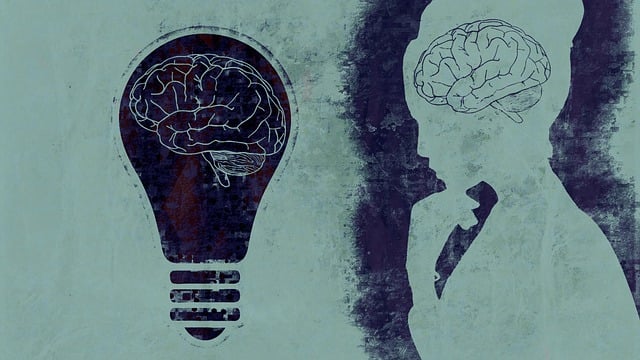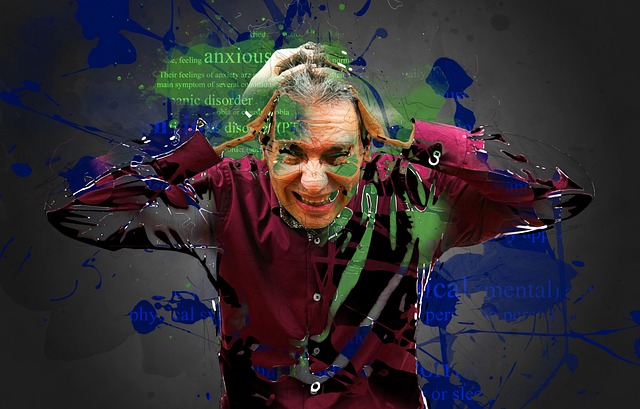Emotion regulation is crucial for elder mental wellness, addressing aging-related challenges like stress, loss, and health changes. Tailored therapy approaches are essential, especially using evidence-based methods like Eye Movement Desensitization and Reprocessing (EMDR) for trauma processing. EMDR certification equips professionals with tools to support elders, combining techniques like Mindfulness Meditation and Mental Wellness Journaling with risk management planning. Teaching these skills promotes emotional well-being, reduces stress, and enhances resilience through structured self-care routines, fostering holistically healthier seniors. Therapy for Elders EMDR Certified approaches ensure comprehensive care addressing mental and emotional aspects alongside physical health.
Emotion regulation is a crucial aspect of mental well-being, especially among the elderly population. With age often comes an increased risk of emotional challenges, making it imperative to explore tailored therapy approaches. This article delves into the significance of emotion regulation techniques for seniors and introduces two key strategies: EMDR (Eye Movement Desensitization and Reprocessing) certification and practical, accessible methods. We explore how these tools can enhance elder care programs, offering improved quality of life and mental health outcomes through effective therapy tailored to elders’ unique needs.
- Understanding Emotion Regulation: The Need for a Therapy Approach Tailored to Elders
- EMDR Certification: A Powerful Tool in Teaching Effective Emotion Regulation Techniques
- Practical Strategies: Emotion Regulation Techniques That Resonate with Elderly Populations
- Benefits and Implementation: Integrating Emotion Regulation Training into Elder Care Programs
Understanding Emotion Regulation: The Need for a Therapy Approach Tailored to Elders

Emotion regulation is a vital aspect of mental wellness, especially for elders facing the unique challenges of aging. As individuals age, they may experience increased stress, loss, and changes in physical health, all of which can impact their emotional well-being. Therefore, tailoring therapy approaches to cater to the specific needs of this demographic is essential. Many older adults might benefit from innovative therapeutic methods that incorporate techniques like Eye Movement Desensitization and Reprocessing (EMDR), a highly effective approach for processing traumatic memories and managing emotions.
By combining evidence-based practices with an understanding of the aging process, mental health professionals can develop comprehensive strategies. This could include incorporating Mindfulness Meditation as a grounding technique to help elders stay present and calm during emotional distress. Additionally, encouraging regular Mental Wellness Journaling Exercises can provide a safe space for them to express their feelings and track their emotional patterns, fostering better self-awareness and coping skills. Effective risk management planning is also crucial, ensuring professionals are equipped to navigate the complexities of working with this population.
EMDR Certification: A Powerful Tool in Teaching Effective Emotion Regulation Techniques

EMDR (Eye Movement Desensitization and Reprocessing) Certification is a valuable asset for professionals teaching emotion regulation techniques, especially when tailored to the unique needs of elders. This powerful therapeutic approach has been recognized as an effective method for addressing trauma and managing emotions in various contexts, including senior care. By obtaining EMDR certification, therapists enhance their ability to provide specialized guidance on stress management and crisis intervention for older adults, who may face specific emotional challenges due to age-related changes and life transitions.
The integration of EMDR into teaching practices offers a dynamic framework for promoting mental wellness in elders. Through this certification, professionals learn advanced techniques to assist clients in processing traumatic memories and managing intense emotions. By combining eye movements with cognitive therapy, EMDR facilitates the reprocessing of distressing events, helping individuals gain new insights and reduce emotional distress. This approach has been particularly beneficial in encouraging journaling exercises as a mental wellness practice, enabling elders to explore and express their feelings safely and effectively.
Practical Strategies: Emotion Regulation Techniques That Resonate with Elderly Populations

Teaching emotion regulation techniques to elderly populations requires a nuanced approach that resonates with their unique needs and experiences. For seniors, managing emotions effectively can significantly enhance their quality of life, fostering a sense of independence and well-being. Practices like mindfulness meditation and deep breathing exercises have proven beneficial in reducing stress and promoting relaxation. These simple yet powerful tools can be easily integrated into daily routines, encouraging a sense of calm amidst life’s challenges.
Certified EMDR therapists play a vital role in guiding the elderly through specialized therapy. Eye Movement Desensitization and Reprocessing (EMDR) is an evidence-based method that assists individuals in processing traumatic memories and reducing associated emotional distress. By combining this approach with resilience-building strategies, such as cognitive reframing and positive affirmations, seniors can develop effective coping mechanisms. Moreover, encouraging the adoption of a structured self-care routine, encompassing physical activity, social engagement, and mental stimulation, can serve as an holistic stress reduction method, fostering both emotional and physical health.
Benefits and Implementation: Integrating Emotion Regulation Training into Elder Care Programs

Integrating emotion regulation training into elder care programs offers significant benefits for senior well-being. By incorporating techniques such as Mindfulness Meditation and Compassion Cultivation Practices, caregivers can enhance the quality of life for elders, helping them manage stress, anxiety, and depression effectively. These practices not only improve emotional resilience but also foster better communication and social connections among residents.
EMDR Certified therapists play a pivotal role in teaching these skills, providing therapy for elders that goes beyond traditional medical approaches. Through structured programs, seniors can learn valuable emotion regulation techniques, enabling them to navigate life’s challenges with greater ease. Implementing such training within elder care settings ensures a holistic approach to healthcare, focusing on the mental and emotional well-being of residents alongside their physical health.
Emotion regulation techniques tailored for elders, especially those certified in EMDR, offer a transformative approach to elder care. By integrating practical strategies into care programs, we can significantly enhance the quality of life for elderly individuals, empowering them to navigate their emotions effectively. This tailored therapy addresses a critical need, fostering resilience and overall well-being among this deserving population.














